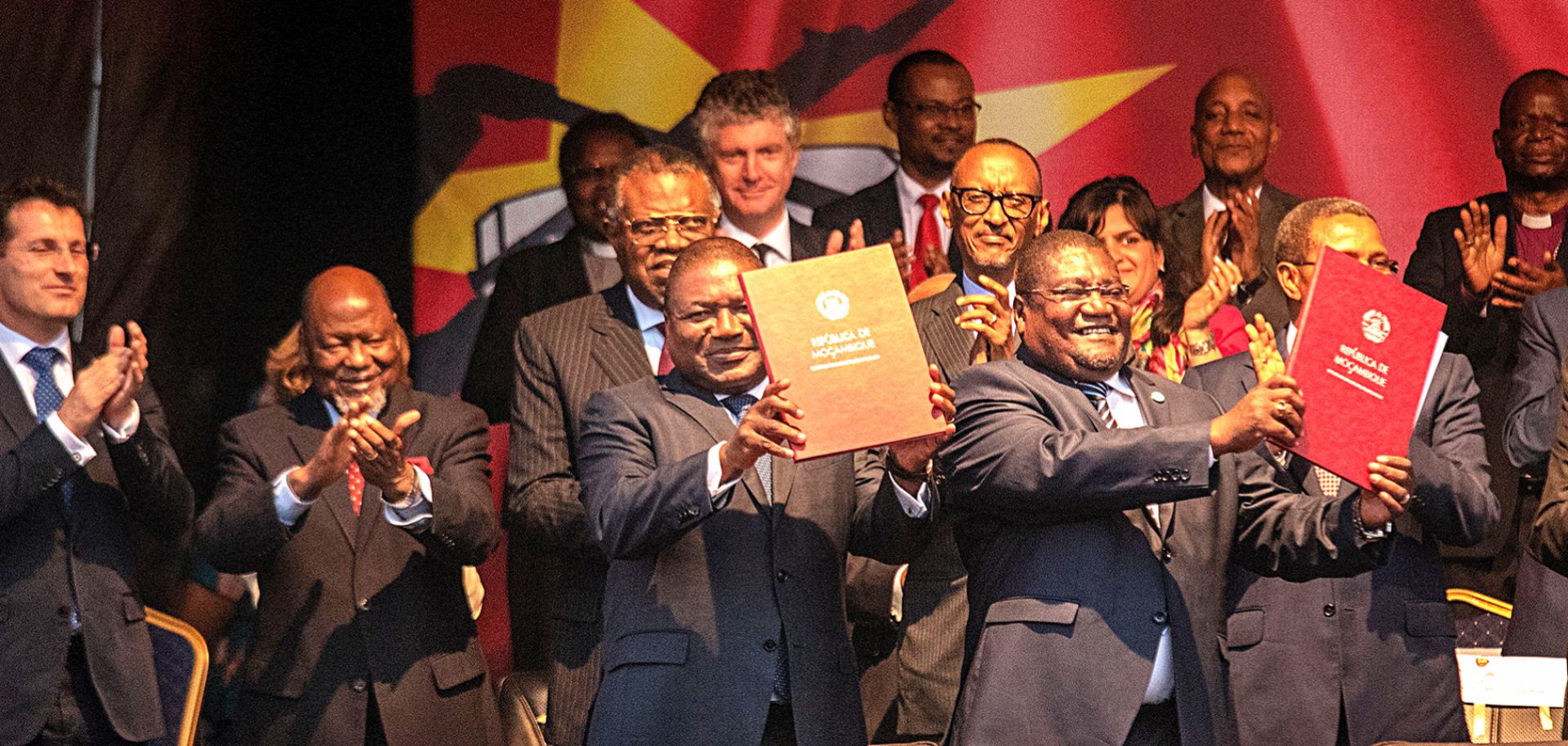ASSESSMENTS
Can Mozambique Shield Its Energy Investments From Escalating Terrorism?
Aug 19, 2019 | 09:00 GMT

Mozambican President Filipe Nyusi (center left) and Mozambican National Resistance leader Ossufo Momade celebrate the signing of a cease-fire agreement in Maputo on Aug. 6, 2019.
(STRINGER/AFP/Getty Images)
Highlights
- The ongoing Islamist insurgency in Mozambique's northernmost Cabo Delgado province is likely driven by the region's geographic and cultural isolation, as well as corrupt local institutions and other forms of oppression.
- The government's recent peace deal with the militant Mozambican National Resistance may free up additional resources to help secure the region.
- But should the government fail to fundamentally understand and address the drivers of conflict in Mozambique's far north, the violence will likely continue to escalate — possibly constraining investments in the country's emerging energy sector in the process.
Subscribe Now
SubscribeAlready have an account?
